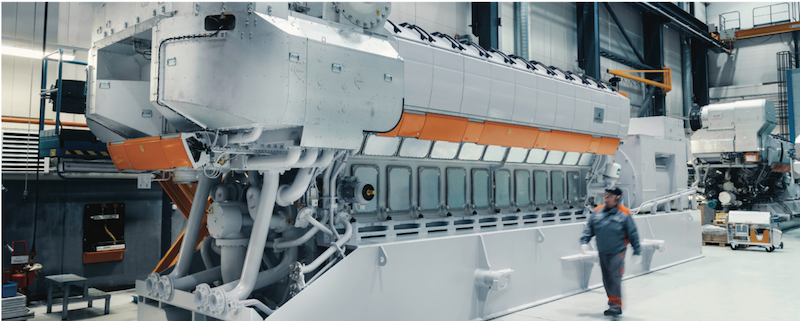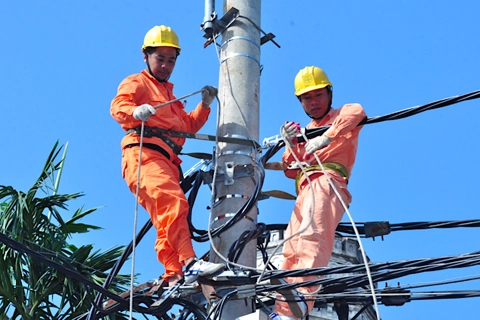Vietnam should add internal combustion engine power plants from 2022: Study
A study proposes developing a mechanism for reserve capacity payments for flexible power plants, and developing an ancillary services market for the Vietnam grid.
A latest power system study carried out by the Vietnamese Institute of Energy (IE) under the Ministry of Trade and Industry (MoIT) recommends adding internal combustion engine (ICE) power plants in the National Power Development Plan VIII to ensure energy security.
| An internal combustion engine |
In the short term, the IE recommends building 650MW of ICE power plants in the South during 2022-2023 to support the high energy demand from 2022 to 2025, especially as Vietnam is expected to experience delays in the delivery of some coal and liquified-natural gas (LNG) power projects in the South. Additionally, drought conditions could create a risk of power shortage in the country.
In the long term, the needed capacity of flexible ICE power plants to provide reserve capacity, supply peak demand, and balance the renewable generation in the grid will be 2.5GW in 2030, 10.6GW in 2040 and 13.4GW in 2050. With ICEs in the system, the total system cost will be reduced by US$180 million per year in 2030, and similar savings can be achieved in the future years by building more ICE power plants.
| Proposed capacity of ICE power plants in 2022-2030 by the IE |
Advantages of IEC power plants
This study introduces a sustainable, reliable, and affordable type of power generation technology, the ICE. ICE-based power plants can be built quickly and operate flexibly as an enabler for power systems with a high proportion of solar and wind power. Without flexible ICE-based power plants it will be difficult to balance the system and to provide critical power.
Furthermore, significant RE penetration cannot realistically be achieved, and the savings by low cost RE will not be realized without ICE. An ICE can reach 100% capacity within just two minutes, can quickly be ramped up and down, and can be shut down and restarted without any operational penalties. This ability saves fuel, wear-and-tear as well as emissions, since running the engines idle is not necessary.
ICE-based power plants are different than conventional thermal power plants using steam & gas turbines. These contemporary combustion engine plants provide ultimate flexibility with high efficiency, harnessing gaseous, liquid or biofuels. These plants can operate on base load, provide peaking power, and also provide grid stability services. ICE power plants comprise standardized modular units, allowing for fast construction time (within one year only) and easy expansions.
It is necessary to determine the optimal investment in new generation assets in Vietnam, and to study the role of ICE power plants using LNG in the grid from 2020 to 2050. Flexible ICE power plants are the key to ensuring demand is met in the short-term while enabling the smooth integration of renewables into the grid.














